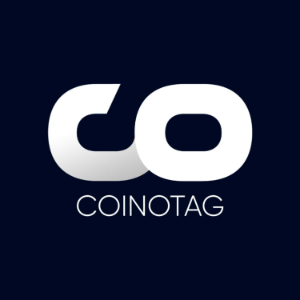Crypto lending group Genesis sues parent company over $2.1B in disputed transfers
3 min read
Crypto lender Genesis Global Capital has launched legal action against its parent company, Digital Currency Group (DCG). Genesis has brought legal action in the courts of Delaware and New York following bankruptcy proceedings, which concluded in August 2024. The litigation seeks to recover approximately $2.1 billion in disputed transfers to benefit creditors. Genesis accuses DCG and executives of fraud and self-dealing The lawsuit filed in Delaware Chancery Court by Genesis Global Capital contains serious allegations against Digital Currency Group, its founder and CEO Barry Silbert, and other company insiders. In order to pay back the creditors of the cryptocurrency lender, the complaint requests the recovery of one million coins, which are worth around $2.1 billion. According to court documents made public on Monday, Genesis accuses DCG and its leadership of engaging in reckless loan activities and operating without reasonable risk management protocols. According to the petition, the defendants allegedly took advantage of Genesis’ creditors and consumers by using “other people’s money” to profit themselves. The partially redacted complaint details what Genesis describes as an intentional “misinformation” campaign where Silbert and other executives allegedly misled customers about the company’s financial stability. The suit claims DCG manipulated financial disclosures to hide the true state of the business while benefiting DCG and its bitcoin trust, Grayscale Investments LLC. Philippe Selendy of Selendy Gay, who represented the Genesis litigation oversight committee, spoke about the situation. He stated it was showing “a pattern of self-dealing, fraud, and mismanagement that deprived hundreds of individual Genesis creditors and institutional lenders of billions of dollars of value in crypto and fiat assets.” The Delaware case is one of the most significant bodies of litigation in Genesis’ overall strategy following the Chapter 11 bankruptcy filing in January 2023. The company finalized restructuring in August 2024 and distributed around $4 billion in cash and cryptocurrency to the creditors. The plan, to which DCG objected, involved a $2.2 billion payout to Gemini Earn customers and uncapped recoveries based on prevailing asset prices. New York bankruptcy trial filing targets $1 billion of preferential transfers Genesis filed a second lawsuit in the Southern District of New York, US Bankruptcy Court, in a similar case. The suit claimed over $1 billion in allegedly wrongful transfers during the year prior to its bankruptcy filing. The suit is directed at insider transfers during Genesis’s insolvency. New York’s filing seeks to qualify these transactions as preferential transfers in bankruptcy and recover their value on behalf of the creditors. The disputed crypto payments are in excess of $582 million, and the total preferential transfers are in excess of $1.2 billion as of March 31, according to the court filing. The lawsuit mentions other transactions, including $101 million to the DCG subsidiary HQ Enhanced Yield Fund, $136 million to DCG International, and $448 million to DCG. Genesis is further claiming recovery of $34 million of tax payments to DCG. They further claimed that transfers were unauthorized and not valid liabilities. Genesis asserts that these transfers took place at a period of record market volatility in the crypto space. These were the collapse of stablecoin Terra-Luna, the collapse of crypto hedge fund Three Arrows Capital, and the FTX Trading 2022 bankruptcy scandal. The lawsuit claims that DCG was aware that Genesis’ business was on the verge of collapse during the period. “DCG recognized the existential threat to Genesis and, with it, to DCG and the Insider Defendants that had loaned Genesis hundreds of millions of dollars,” the firm stated in court documents. The lawsuit contends Genesis was actually insolvent by the end of 2021 and accumulated $14 billion in outstanding loans. The crypto lender attributes its insolvency to structural risks and inadequate internal controls that its parent company and insiders allegedly knew about but failed to address. KEY Difference Wire helps crypto brands break through and dominate headlines fast

Source: Cryptopolitan



